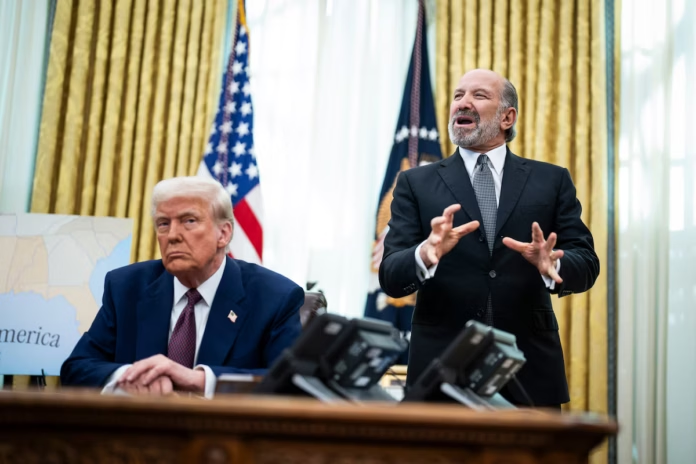President Donald Trump is ready to restructure the oversight of USPS Control, which has remained independent for 250 years. It has been expected that Trump will use an executive order to dissolve the board of governors of the Postal Service and bring it into the Department of Commerce under Secretary Howard Lutnick. The whole situation raises serious concerns about the future of postal delivery, the honesty of online transactions, and mail-in balloting.
USPS under Threat of Independence
Being independent of government agencies, the USPS has always worked freely and independently to carry out an unbiased mail delivery service. Once reorganized under the Commerce Department, it will cease to be independent. The reorganization can lead to policies that may put private interests before the public good, hamper operational transparency, and give room for political interference in mail delivery services.
To opponents, such reorganization can undermine USPS as a public service. The agency is part of America’s infrastructure, delivering mail to millions of homes daily, including those in rural communities that private delivery agencies tend to bypass. Converting it into a government-operated department might give greater importance to cutting costs over accessibility, perhaps leading to the elimination of services and increased postage rates.
Also read : How DEI Rollbacks Impact Black-Owned Businesses in 2025
Economic Disruptions and E-Commerce Issues
The most immediate concern is whether this action disrupts the trillion-dollar e-commerce sales that depend on USPS for its cheap and easy shipping. From small businesses to big online retailers, businesses depend on USPS for fast and cheap shipping. Any disruptions in their service, be it policy changes, pricing structures, or cutting down delivery days, would send tremors throughout the economy.
It is on this foundation that online retailing giants have based their delivery model. By being made part of the Commerce Department, USPS gets exposed to being compromised, possibly letting private operators such as FedEx and UPS generate profits while charging higher rates to consumers and small companies.
Mail-In Voting and Political Impacts
The economic side appears to have some political overtures, too. USPS has greater salience in facilitating mail-in votes, a system underpinning millions of Americans, especially in elections. Critics are concerned that, by putting the agency under the executive branch, Trump will be in a position to enact policies that make it harder for Americans to vote by mail, thus affecting turnout.
Trump has frequently attacked mail-in voting, alleging—without much evidence—that it engenders large-scale fraud. Relocating USPS Control under the Commerce Department could also allow for alterations in policy that disrupt or delay the processing of ballots, exacerbating the ever-present concern of electoral equity.
Legal and Public Backlash
By far, the majority of political analysts and jurists view the intended Trump executive order as a historic and possibly illegal land grab for authority. This could face a very strong legal challenge if it moves to dissolve the independence of the USPS board to obtain more powers for itself. Courts will have to determine specifically if that kind of action is lawful if Congress or consumer interest groups express their anger toward it.
Public backlash toward it has been vocal, as a large cross-section of the general public views this move as an attempt by an authoritarian government to politicize a vital public institution. Critics argue that doing so would set a dangerous precedent and allow governments in the future to grab independent agencies for political interests.
Also read : Pope Francis Health Improves Slightly Amid Pneumonia Battle
What’s Next for USPS?
Should Mr. Trump go ahead with these plans, the USPS Control may soon face serious operational changes. This might involve changes in pricing policies, service cutbacks, and maybe attempts at privatization. The long-term effects of these wide-ranging changes could reshape how Americans engage with their postal service, with far-reaching implications for businesses, consumers, and voters.








